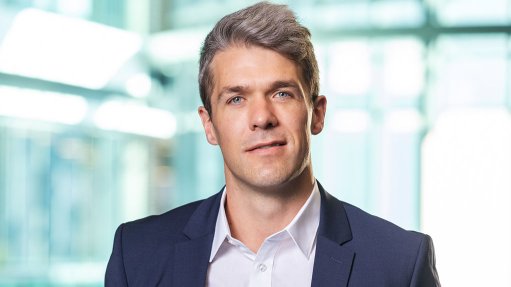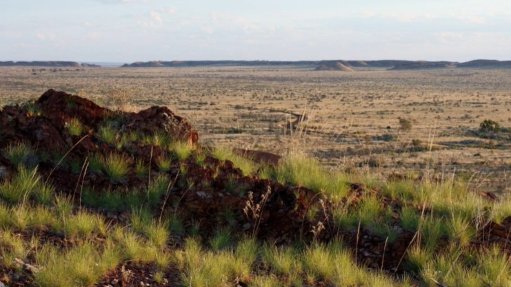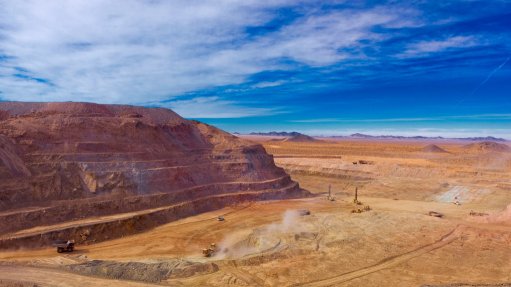Mentoring certification is now mandatory for mining engineers – but this is not a bad thing
This article has been supplied.
By Roland Innes, Group CEO at DYNA Training
As of January 2023, the Mine Engineer’s Certificate of Competency requires a mentor to possess certification from an accredited institution, and proof that at least five engineers in training are being mentored, in addition to other requirements. However, while this may be viewed as another hurdle in achieving certification, it can be hugely beneficial, not just for engineers themselves but for mines as well. Embracing this new requirement as a positive can make all the difference in shifting mindsets and can help mining engineers further their careers and mines to improve efficiency, productivity, and safety in the long term.
Meeting with resistance
While mentorship has now become one of the criteria for competency certification, many engineers remain reluctant to pursue mentorship skills. Reasons for this include a lack of time for additional responsibilities like mentoring, as well as a lack of incentive or reward for pursuing these goals. There is also a lack of training to contend with, as mining engineers may not have received formal mentoring training, leaving them feeling ill-equipped to take on the role. This shift represents a change in the way things have always been done, so resistance to this change as well as fear of making mistakes or giving bad advice could hold them back.
Addressing these challenges requires mining organisations to get on board with incentives and recognition for mentors, as well as training and support for mentoring skills development. The goal should be to create a culture that values mentoring and encourages engineers to take on the role of a mentor. This will not only aid in achieving the requirements for certification, but will also create an environment that encourages learning and development, which will benefit both the organisation and its employees.
Why mentoring skills are important
Mentoring is a critical element in effective skills transfer, helping the next generation of mining professionals to benefit from the knowledge and experience that exists within the organisation. This helps mines to develop a pipeline of talent to improve business continuity. It also assists with enhancing job performance all around, as mentoring can identify areas for improvement and then goals can be set and plans developed to achieve these goals.
Effective mentors are empowered to provide guidance and support to help engineers overcome challenges, learn new skills, and achieve their full potential. But these skills can also help mining engineers themselves by developing leadership skills, including communication, listening and problem-solving, which are essential management skills and important for job progression. Having effective skills in these areas can enhance job satisfaction and enhance both personal and professional growth.
Mentoring can expose mining engineers to different perspectives and ways of thinking, which can broaden their horizons and enhance their creativity and innovation, ultimately benefiting their careers as well as the productivity of the mines. These skills also help build professional networks and relationships that can provide valuable insights, advice, and opportunities for career advancement.
Accredited providers can simplify training processes
Having the right skills around mentoring can help mining engineers become more effective, resulting in satisfied employees, but the fact remains that a certificate of competency is now also a requirement for the Mine Engineer Certificate of Competency. This must also be awarded by an accredited provider.
By seeking out accredited mentorship training programs offered by reputable institutions, mines will empower their engineers with the guidance they need to complete the certification quickly. This simplifies the training process and in turn will help them to mentor effectively, add value to their resumes and demonstrate their commitment to their professional development and the success of their mine.
Article Enquiry
Email Article
Save Article
Feedback
To advertise email advertising@creamermedia.co.za or click here
Press Office
Announcements
What's On
Subscribe to improve your user experience...
Option 1 (equivalent of R125 a month):
Receive a weekly copy of Creamer Media's Engineering News & Mining Weekly magazine
(print copy for those in South Africa and e-magazine for those outside of South Africa)
Receive daily email newsletters
Access to full search results
Access archive of magazine back copies
Access to Projects in Progress
Access to ONE Research Report of your choice in PDF format
Option 2 (equivalent of R375 a month):
All benefits from Option 1
PLUS
Access to Creamer Media's Research Channel Africa for ALL Research Reports, in PDF format, on various industrial and mining sectors
including Electricity; Water; Energy Transition; Hydrogen; Roads, Rail and Ports; Coal; Gold; Platinum; Battery Metals; etc.
Already a subscriber?
Forgotten your password?
Receive weekly copy of Creamer Media's Engineering News & Mining Weekly magazine (print copy for those in South Africa and e-magazine for those outside of South Africa)
➕
Recieve daily email newsletters
➕
Access to full search results
➕
Access archive of magazine back copies
➕
Access to Projects in Progress
➕
Access to ONE Research Report of your choice in PDF format
RESEARCH CHANNEL AFRICA
R4500 (equivalent of R375 a month)
SUBSCRIBEAll benefits from Option 1
➕
Access to Creamer Media's Research Channel Africa for ALL Research Reports on various industrial and mining sectors, in PDF format, including on:
Electricity
➕
Water
➕
Energy Transition
➕
Hydrogen
➕
Roads, Rail and Ports
➕
Coal
➕
Gold
➕
Platinum
➕
Battery Metals
➕
etc.
Receive all benefits from Option 1 or Option 2 delivered to numerous people at your company
➕
Multiple User names and Passwords for simultaneous log-ins
➕
Intranet integration access to all in your organisation





















